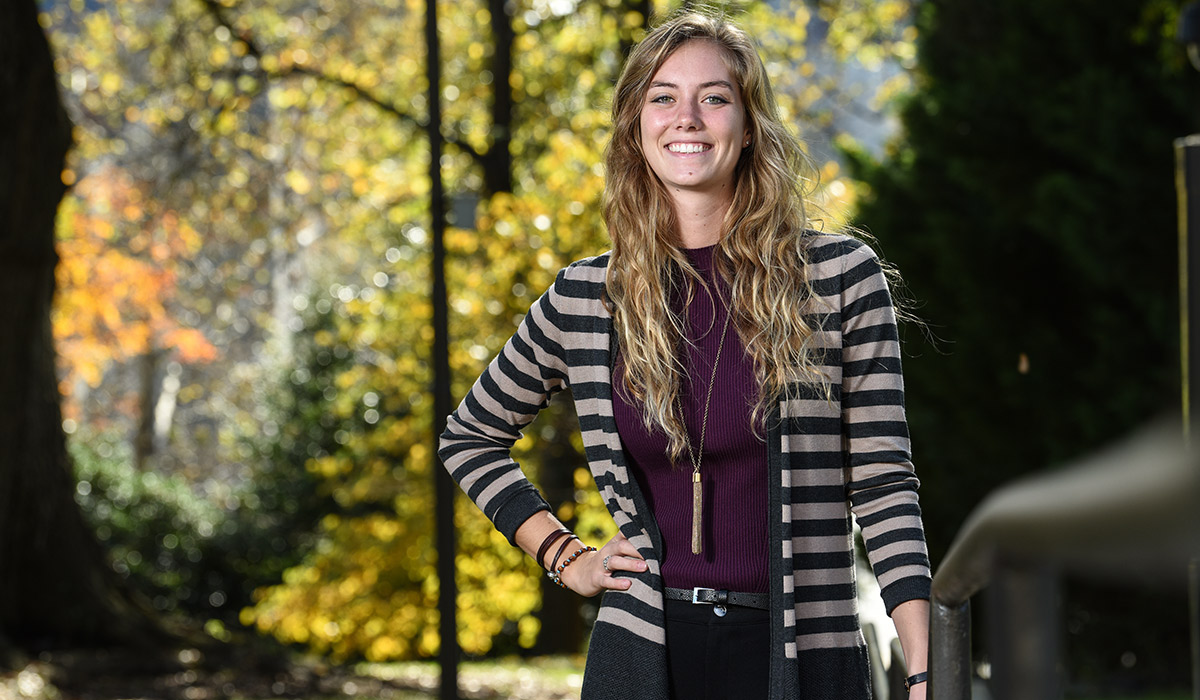

Sarah Washington aims to replicate the love and support she experienced in her close-knit family with all of those in her sphere, wherever she goes. That may encompass hundreds—even thousands of people—given that Sarah’s goal is teaching high school mathematics. She is one of two inaugural students in the University’s new 4+1 BS/MA in Mathematics Secondary Education program. This year, Sarah, who graduated with a B.S. in Mathematics in May 2018, is completing her fifth-year master’s degree.
As a high school teacher, Sarah will likely interact with upwards of 150 students a day, not to mention teachers, administrators, and parents. And that’s exactly the way she wants it. Sarah sees her mission in line with Aristotle’s Nicomachean ethics: happiness comes through virtuous action. “I want to help people be the best version of who they can be, while also trying to better myself every day.”
When asked to name someone who was a major influence in her life, Sarah names her entire family—parents and siblings. She describes the ideal family—and it’s hers. “I saw my dad take care of the people he worked with in the Navy. When my dad deployed, my mom stepped up; she’s the backbone of our family. My older brothers who are in the Navy, and my sister, who also goes to the University, worked hard to get where they are with humility and grace. They care deeply about others. We all adore each other.”
When Sarah met leaders in the University’s Department of Education, their philosophy of teaching and learning matched the supportive atmosphere of her family life. “Dr. Agnes Cave, Director of Teacher Education, explains that if a student isn’t learning, it’s our responsibility as a teacher to dig deep, figure out what’s going on, and change the situation. Caring about the student is the priority. I love that philosophy. Dr. Cave exemplifies the ideals she teaches, and she’s exactly the kind of teacher I want to be.”
Sarah was tested by the more abstract mathematics in her higher-level major courses, but she views that in Nicomachean terms: overcoming roadblocks results in new self-confidence and thus a better self. “Math challenges you. I want my students to know that even if they’re behind, they can catch up. I’ll be able to see where my students are struggling and help them. When they succeed after a challenge, it’s going to build their confidence. They’ll know they can work through future challenges.”